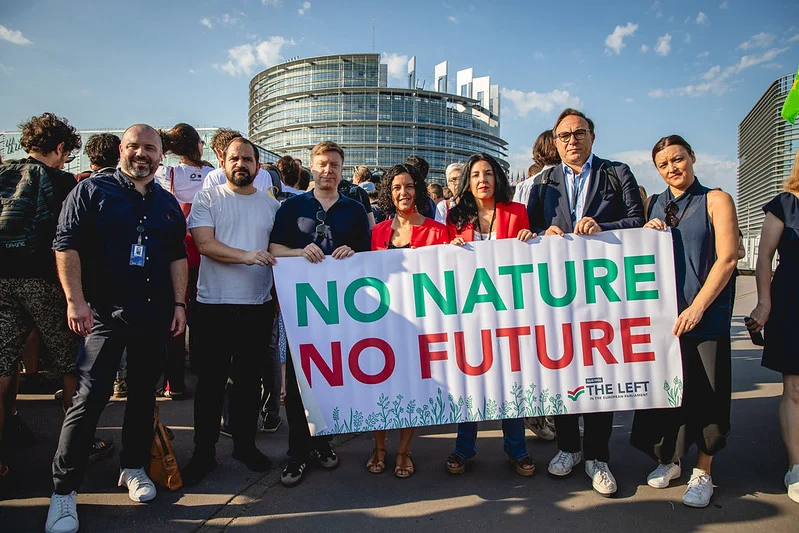The Nature Restoration Law, a highly contentious piece of legislation, received endorsement from EU member states on Tuesday.
Environment ministers voted to advance the draft law, which aims to counteract biodiversity loss in the European Union by rehabilitating degraded land and marine areas.
The law’s targets, including those related to green urban spaces and the rewetting of peatlands, have been adjusted to introduce more flexibility. Additionally, renewable projects will be deemed to serve an “overriding public interest” and thus be exempt from the non-deterioration obligation.
These adjustments helped secure approval for the provisional agreement, which upholds the goal of restoring at least 20% of the EU’s land and sea areas by 2030.
The draft, prepared by the Swedish presidency of the EU Council, is intended to guide further negotiations with the European Parliament.
It garnered 20 votes in favor, five against, and two abstentions, according to a diplomat familiar with the discussions, as reported by Euronews.
Sweden’s Environment Minister Romina Pourmokhtari, speaking after the meeting in Luxembourg, stated, “We have listened carefully to all member states who had different concerns and remarks on the proposal.”
She noted that the deal reflects a balance achieved through compromise, despite some countries’ legitimate objections. Pourmokhtari defended the compromise as consistent with the law’s objectives.
Sweden, her own country, is known to be opposed to aspects of the Nature Restoration Law, particularly those concerning forest management.
Pourmokhtari declared, “Today is a good day for nature.”
Virginijus Sinkevičius, the European Commissioner for the Environment, called it a “good day for the EU’s democracy” and emphasized that the deal would help the bloc meet international commitments made at COP15 in Montreal.

“The Council clearly showed its will to invest political capital in nature,” Sinkevičius said. “Such a constructive approach yielded results, proving that with political will, solutions can be found.”
The outcome on Tuesday provides a temporary reprieve for the Nature Restoration Law amid intense opposition in the European Parliament, where conservative parties have been campaigning vigorously against it.
The centre-right European People’s Party (EPP), the largest group in the parliament, has consistently criticized the proposal, arguing that its legally-binding restoration targets could jeopardize the livelihoods of European farmers and fishers, disrupt supply chains, reduce food production, and drive up prices.
These claims have been challenged by the European Commission, environmental NGOs, and the private sector, which argue that addressing biodiversity loss and climate change simultaneously is essential.
Last week, the parliament’s environment committee (ENVI) conducted a crucial vote on the Nature Restoration Law, seen as a test of the European Green Deal’s viability.
A motion by the EPP to reject the proposal outright ended in a tie, with 44 votes in favor and 44 against, failing to pass by a single vote. The committee then proceeded to vote on numerous amendments but ran out of time, resulting in a postponement.
A vote on the full text is scheduled for June 27. If the tie is repeated, the committee will need to reject the law and send it to the plenary without amendments, potentially jeopardizing its success.
The EPP Group has vowed to prevent the proposals from becoming law, as stated in a tweet following the Council’s meeting.
Commissioner Sinkevičius urged lawmakers to “carefully review the content” of the law to address any remaining gaps and called on all parties to maintain calm and negotiate.
“This is how we typically reach the best possible conclusions, which are crucial for our future and embodied in the nature restoration proposal,” he said, without directly addressing the EPP.







Leave a Reply